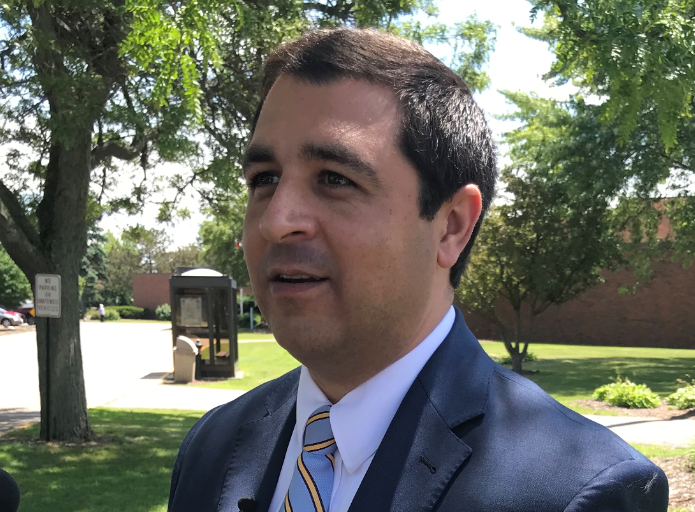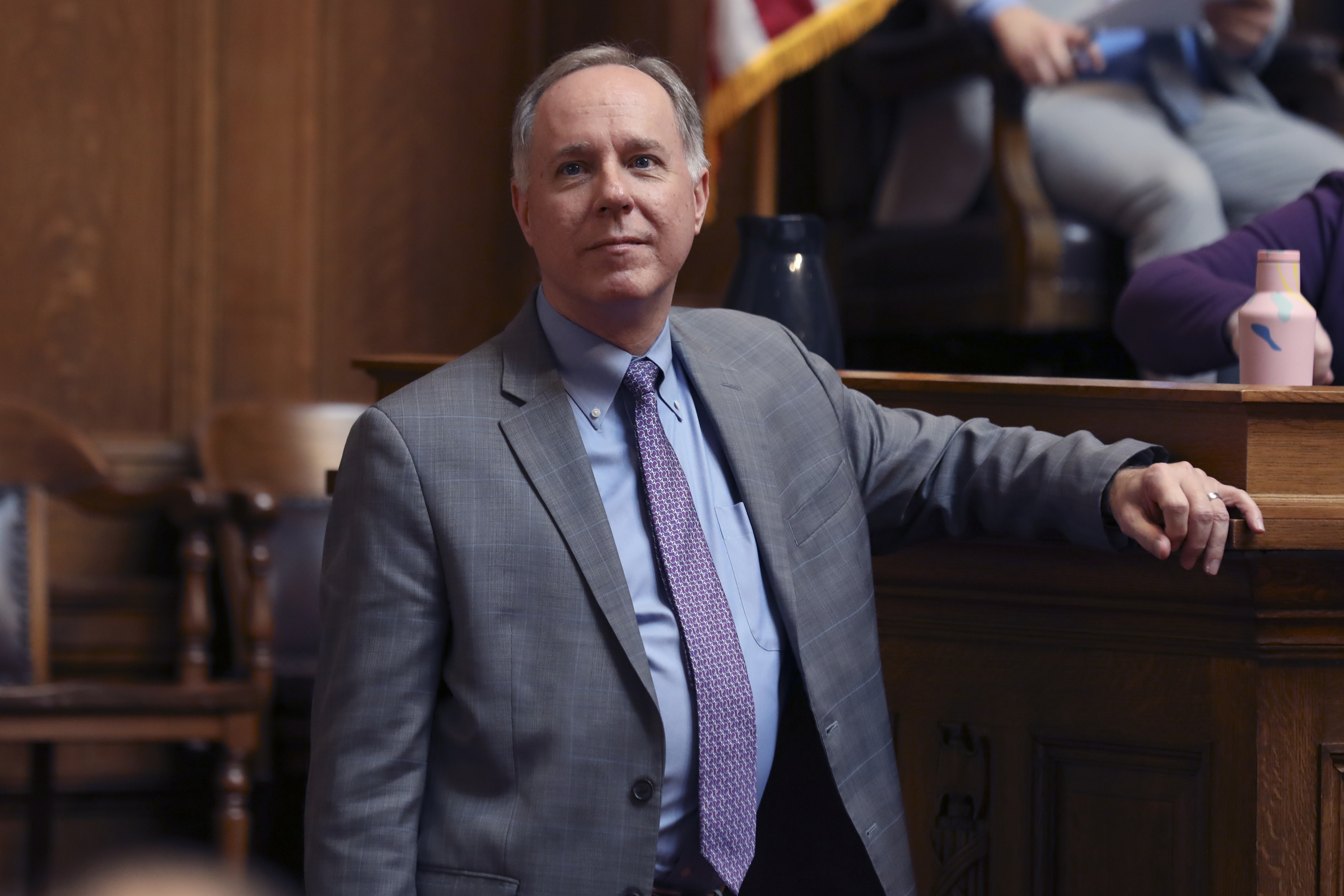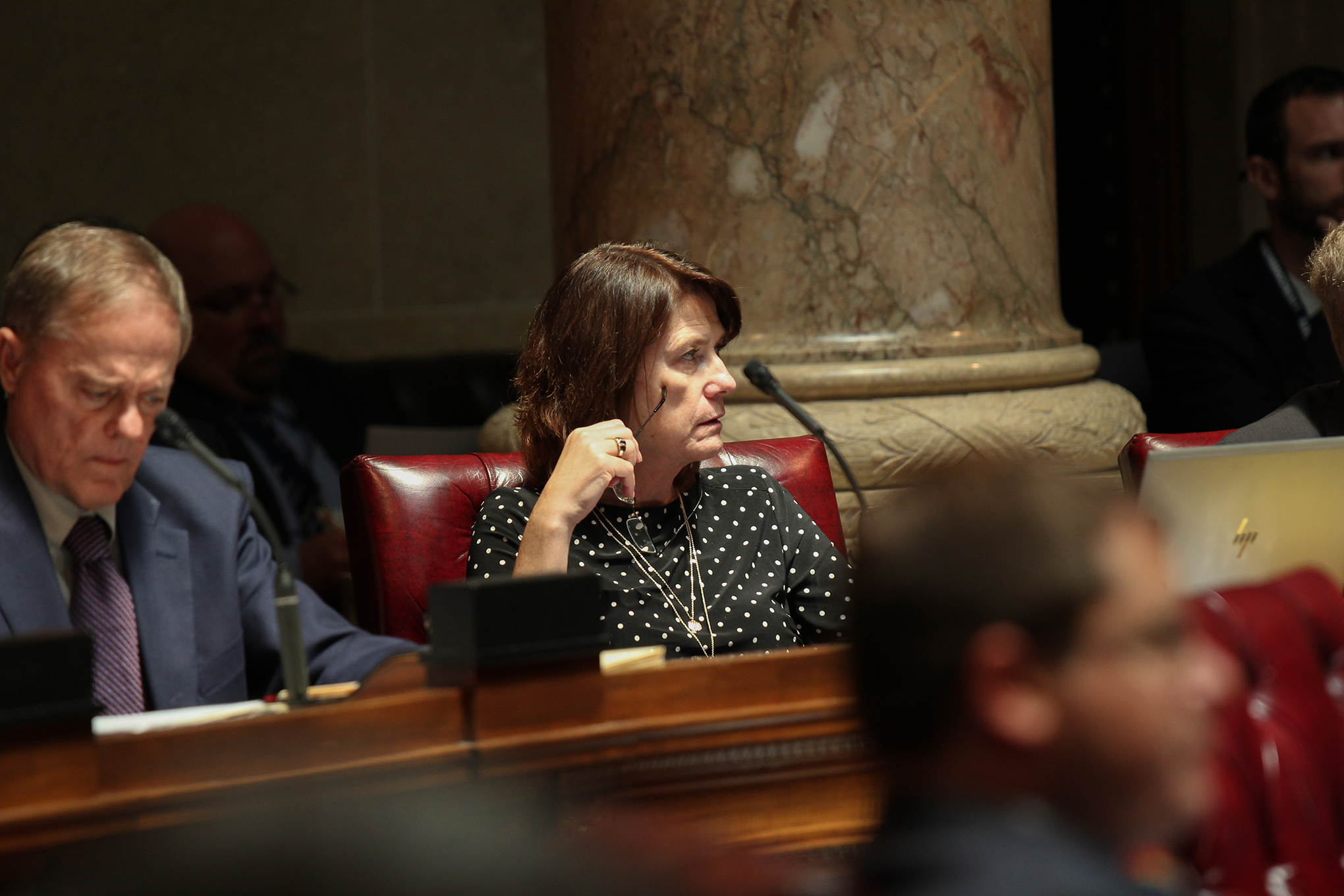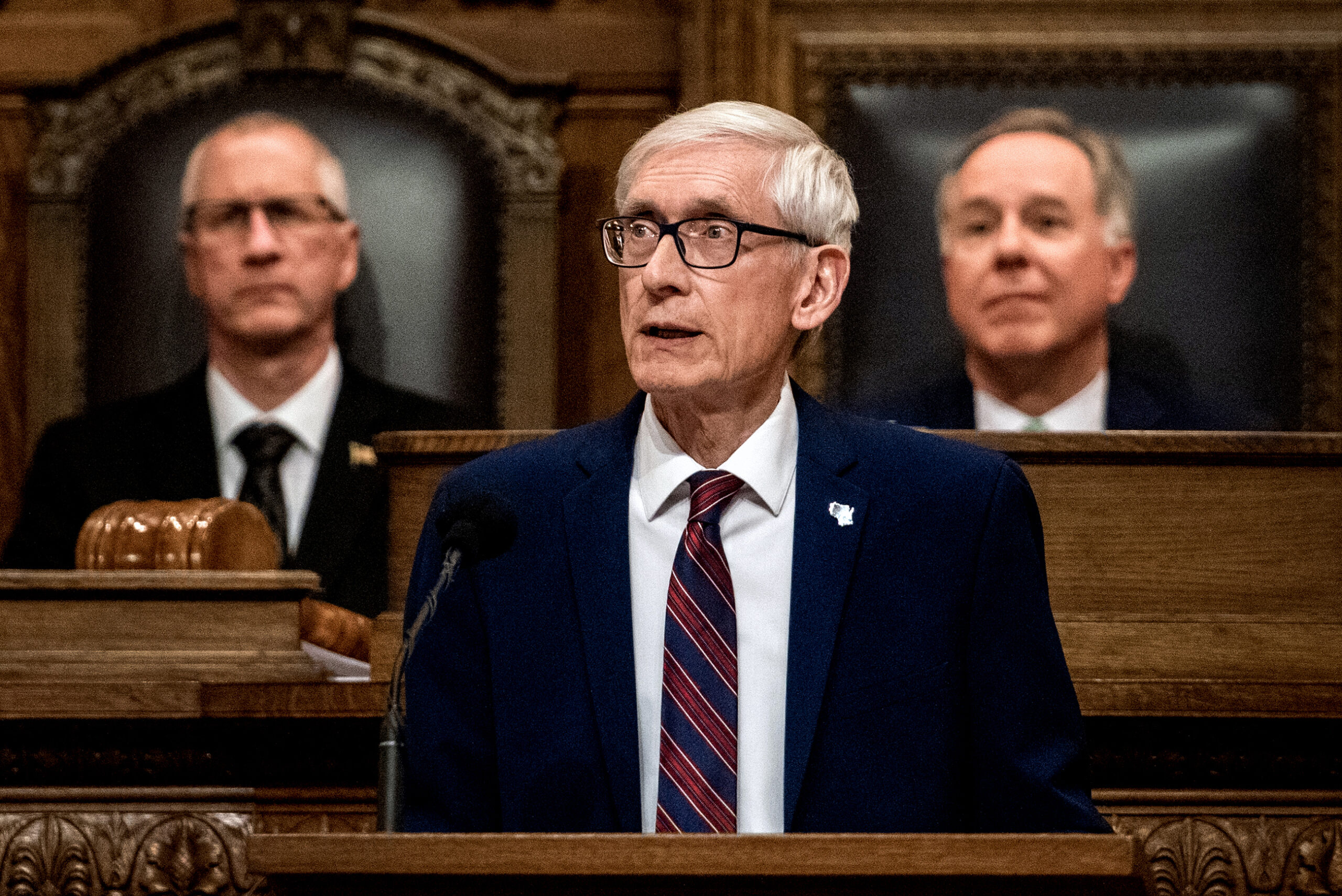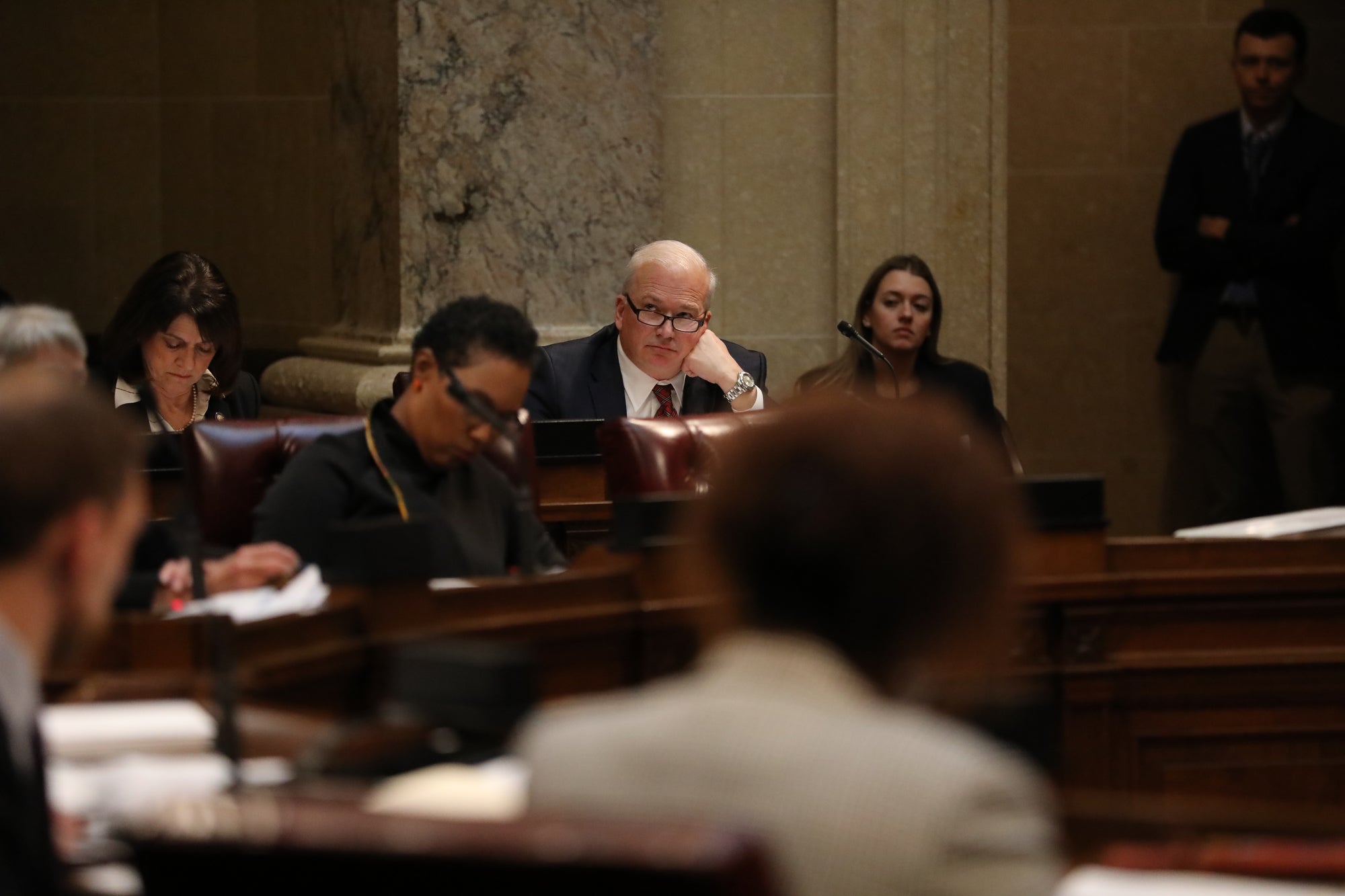More than 15 lawsuits, including one flagged by the state Department of Justice as a “matter of tremendous importance to the state,” remained stalled Thursday as the department and GOP lawmakers continued a standoff over implementing a new state law.
The law, passed during December’s lame-duck session of the Legislature, requires Attorney General Josh Kaul to seek approval from the state budget-writing committee before settling lawsuits involving the state. The law is aimed at giving the Legislature, currently controlled by Republicans, more oversight of the attorney general’s office, which was taken over by Democrats after the 2018 election.
The Democratic attorney general and GOP lawmakers who control the budget-writing committee faced off earlier this week over how to discuss pending legal settlements.
Stay informed on the latest news
Sign up for WPR’s email newsletter.
Kaul’s office asked the committee to convene quickly to discuss a lawsuit of “tremendous importance to the state” that, at the time, required action by 11 a.m. on Friday.
Early in a meeting of the Joint Finance Committee Tuesday, Kaul asked lawmakers to sign confidentiality agreements, which he said were required by terms of the settlement before beginning talks. Legislators refused to do so, arguing a private, closed meeting of the committee should be enough to meet confidentiality requirements.
After the clash, the committee adjourned without discussing the pending legal action. It’s unclear what that means for the potential settlement, the identity of which remains under wraps by the DOJ.
Some have pointed out the state action comes as news has broken nationwide about recent negotiations between state governments and major pharmaceutical companies over lawsuits seeking damages related to the nationwide opioid epidemic.
NPR reported Wednesday that Purdue Pharma, Johnson & Johnson, Endo International and Allergan are currently holding talks with attorneys general across the country.
While the identity of the case that spurred quick convening by the committee remains in question, DOJ is now shedding light on other cases stalled by the impasse.
According to memos released by the department, it’s holding up pending legal action on more than 15 cases that could net the state millions of dollars as the deadlock between it and the budget-writing committee continues.
Those cases include one between the state Department of Employee Trust Funds and a private contractor accused of not completing work that could net the state more than $14 million and a Medicaid malpractice claim worth up to roughly $8 million.
Another affected case is the dispute between the University of Wisconsin System Board of Regents and former UW-Oshkosh Chancellor Richard Wells and former Vice Chancellor Thomas Sonnleitner. Wells and Sonnleitner were charged with misconduct after wrongly assuring private lenders the university would back loans made to the UW-Oshkosh Foundation for private development projects. A related case was resolved through mediation in December, but the challenge between the Board of Regents and defendants remains unresolved, as do criminal charges brought against the defendants in Outagamie County.
While the conflict between the Joint Finance Committee and DOJ was made public this week, documents released by the department on Wednesday show months of back and forth on the issue with GOP lawmakers.
According to the documents, DOJ and legislative staff began discussions in February over how to implement the new settlement approval requirement.
Correspondence shows lawmakers expressed willingness to sign confidentiality agreements on July 12, but reversed their opinion by Aug. 19, arguing the committee’s closed meeting should be sufficient to meet confidentiality concerns.
“Closed sessions were created so committees could handle sensitive — often confidential — information,” wrote state Rep. John Nygren, R-Marinette, and state Sen. Alberta Darling, R-River Hills, who co-chair the budget-writing committee.
Lawmakers also pointed out a history of DOJ discussing pending legal settlements with the governor without requiring confidentiality agreements.
Asked about the impasse Thursday, Gov. Tony Evers said he doesn’t fault Republicans for not wanting to sign confidentiality agreements. But he said GOP lawmakers need to figure out a resolution so Wisconsin does not lose millions of dollars in settlement money.
“We need to have adults come to the table and figure it out,” Evers said.
The released correspondence also showed conflict between lawmakers and the department about the amount of information DOJ would provide the committee about pending cases.
In multiple letters, the committee asked Kaul’s office to provide more than a dozen specific pieces of information about each case pending approval. That information included a summary of each case in question, potential defenses, a list of relevant cases and state laws, a range of settlements offered in similar cases and relevant legal briefs.
Kaul’s office said some of that information would require confidentiality agreements.
“This issue cannot be addressed simply by having JFC convene in closed session,” the attorney general wrote on Aug. 27. “A Wisconsin court decision indicates that material shared in closed session need not be kept confidential.”
Kaul added “considering confidential information and keeping that information confidential is part and parcel of the review of settlements.”
The attorney general requested the committee meet again this week to discuss the case with a Friday deadline.
As of early Thursday afternoon, that meeting has yet to be scheduled.
Wisconsin Public Radio, © Copyright 2024, Board of Regents of the University of Wisconsin System and Wisconsin Educational Communications Board.

